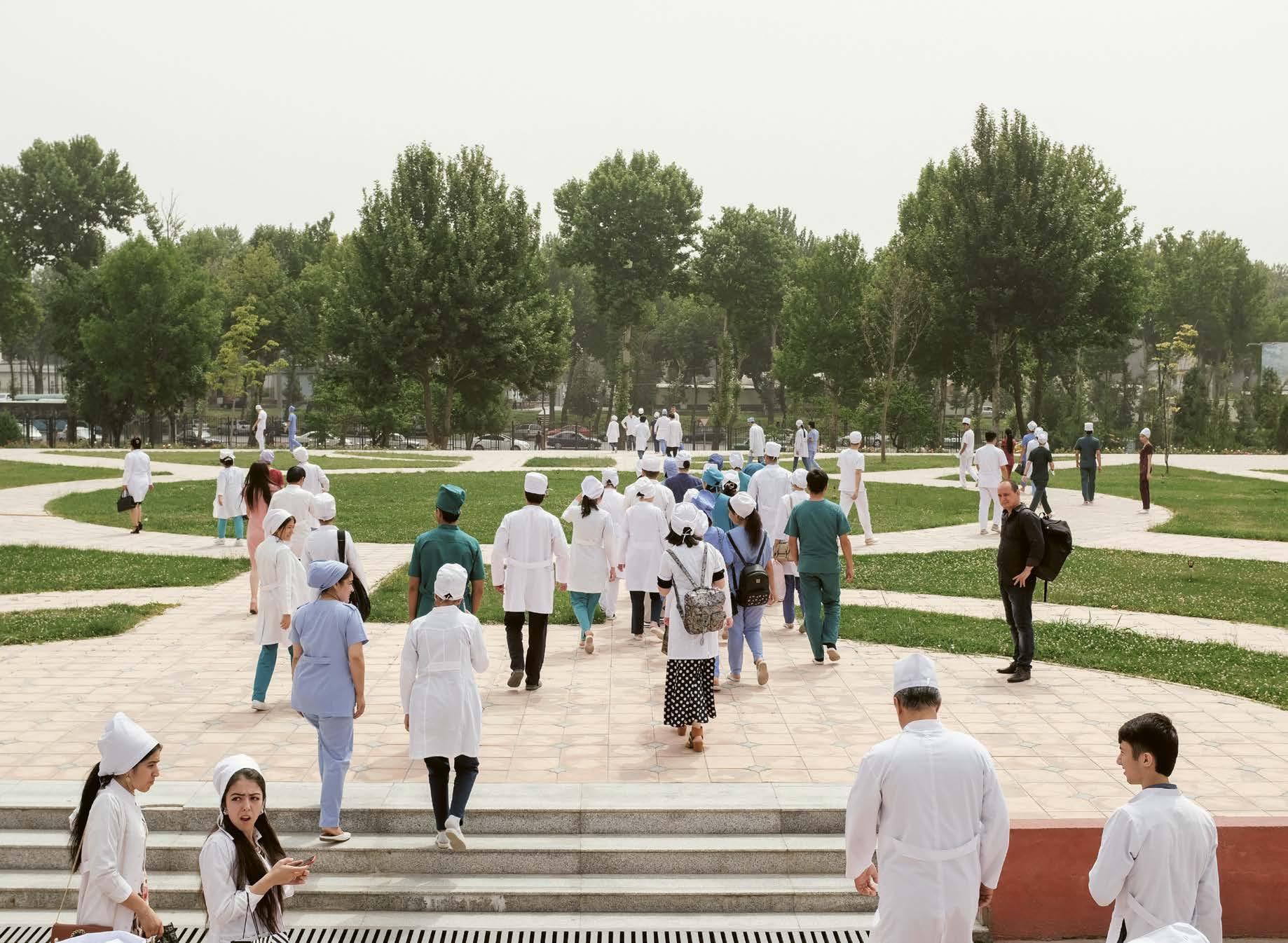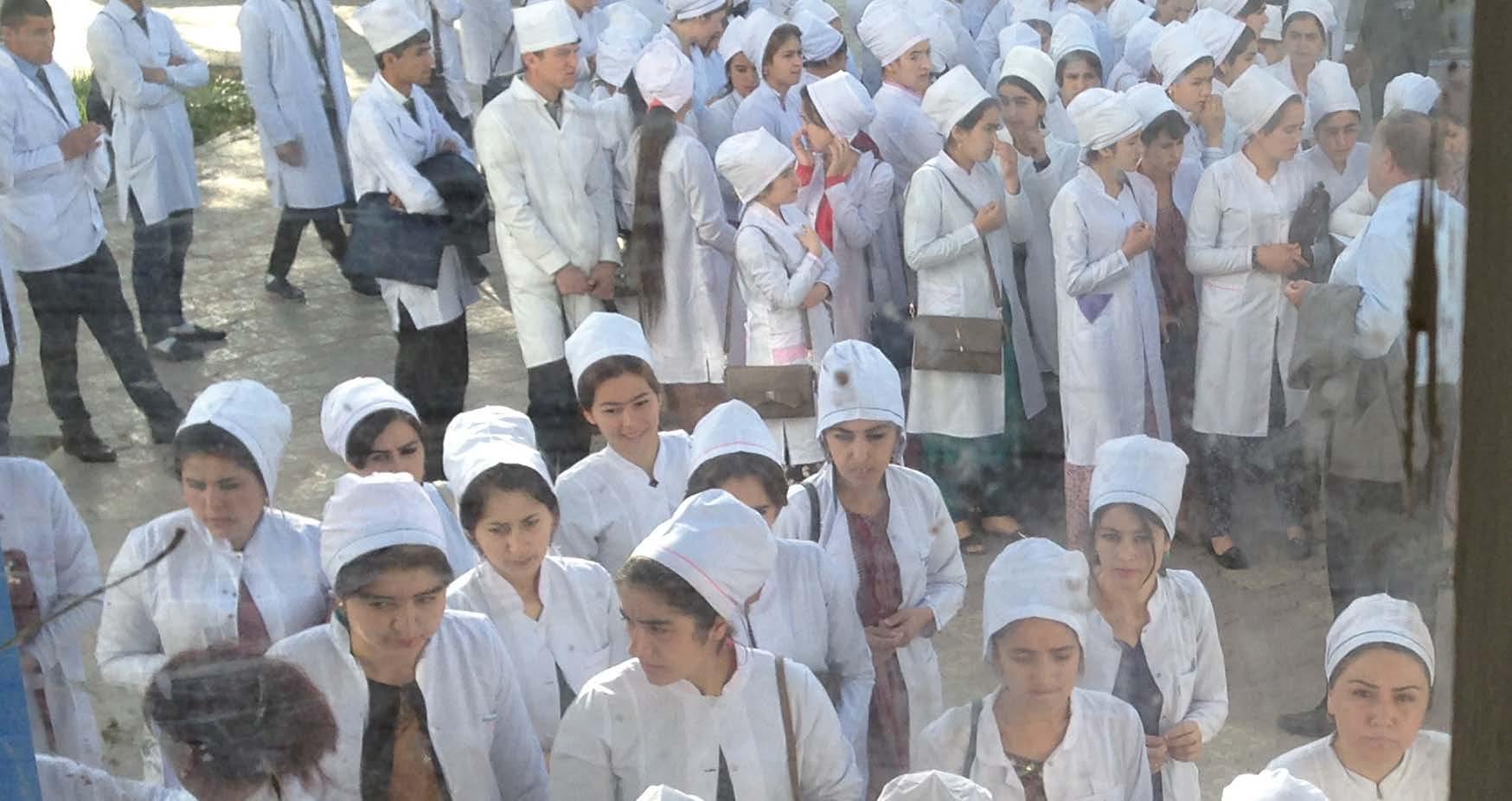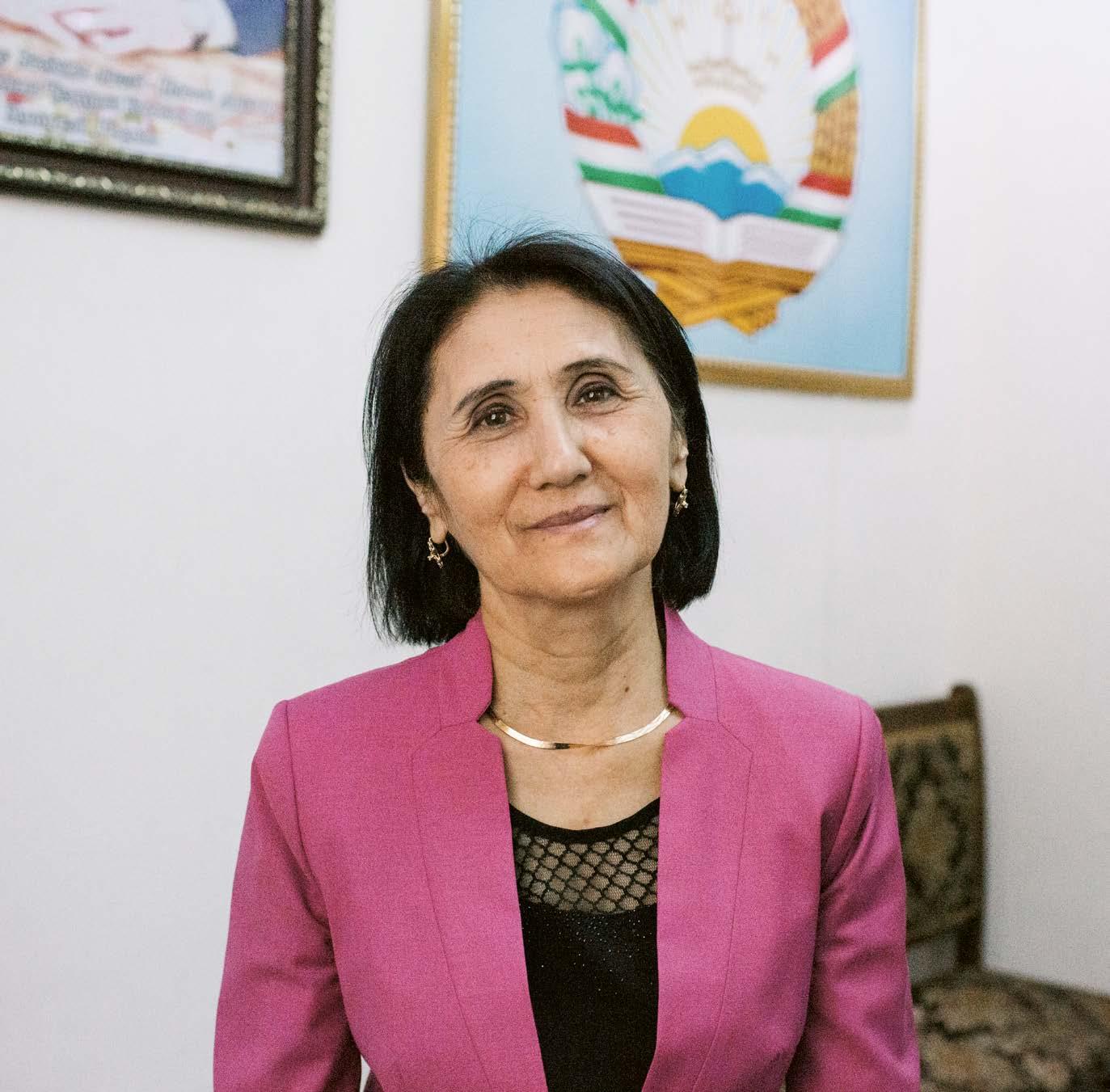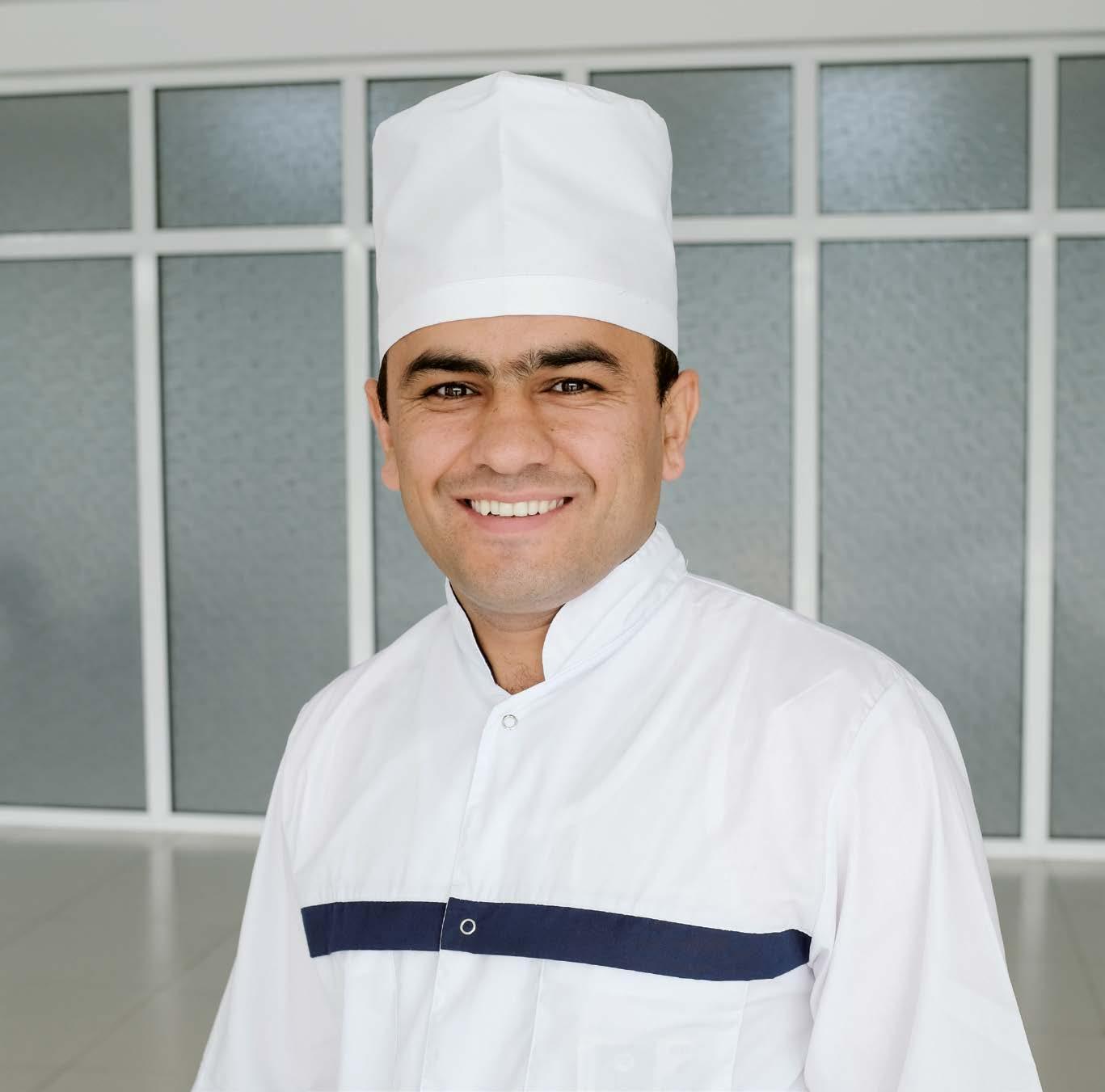
3 minute read
Business Planning

Medical Education Reform
Medical education reform aims to strengthen the quality of PHC in Tajikistan through the reform of undergraduate and postgraduate training and the introduction of new forms of continuous professional development to build a robust workforce of well-trained family doctors and nurses. Medical education operates at the complex intersection between the Ministries of Education, Health and Finance and seeks to make family medicine a valued and widely-recognised career choice, with the potential to directly improve population health.
MEP’s three-pronged approach
1. Undergraduate Reform
– Undergraduate reform for medical students revised curricula with increased clinical skills training and a clinical 6th year – Undergraduate reform for nursing students revised curricula, with the introduction of clinical skills training
2. Postgraduate Reform
– Postgraduate specialty training new 2 year curricula based on clinical placements that produces higher quality family doctors
3. Continuous Professional Development (CPD)
– Updated the Regulation on CPD – Introduction of self-directed learning options like peer groups – Launch of a credit based system – Adoption of National Guideline on Mentoring
What is the Medical Education Reform Project (MEP) all about?
The MEP operates at the complex intersection between the Ministries of Education, Health and Finance and seeks to make family medicine a valued and widely recognised career choice with the potential to directly improve population health. Support has been focused on institutions like the Republican Clinical Centre for Family Medicine, Tajik State Medical University, Post Graduate Institute and Nursing Colleges. Promoting European standards and building on the available evidence and curricula has facilitated competency-based learning, early patient exposure and clinical training in the education of medical doctors and nurses.

“Swiss support gives important attention to organisational development and change management to strengthen institutions to take up the leadership, and further expansion of system level changes as they relate to the education of health workers.”
Mouazamma Djamalova
Senior Health Care Program Officer, Swiss Representation in Tajikistan

MEP’s three-pronged approach

Undergraduate reform: Medical students
The MEP has supported a curricula reform in 2010; capacity building of faculty at the Tajik State Medical University to teach and assess clinical skills; the expansion of a clinical skills based training, and the introduction of a clinical year 6 that is completely self-financed and does not rely on donor support. Tajikistan currently has 132 clinical training areas situated at 58 medical facilities in 17 districts and towns that are accepting medical students for their clinical year 6 placements. The Tajik State Medical University has introduced the Bologna Process credit system, added the Objective Structured Clinical Examination (OSCE) to its assessment repertoire for all clinical topics, and improved the monitoring and assessment of the delivered training quality.
Proven results

An assessment of 10 key clinical skills of medical students finishing year 5 and 6 show that students who also participated in the clinical year 6 obtained a far higher score.
5th-year 23 points
6th-year 42 points
0 10 20 30 40 50
Through specialised support from the University of Calgary, the TSMU faculty is now skilled in the use of In-Training Evaluation Report (ITER) to assess the skills of medical students as they progress through their rotations, so they can identify where they are strong and where they need practice. OSCE are used to evaluate the overall clinical year 6.
Medical Education Reform Project: Achievements of the Tajik State Medical University “The Medical Education Reform Project has been a unique initiative in Tajikistan. Over the past decade, MEP has implemented activities founding the basis for sustainability and ownership by the local stakeholders. From the very start, MEP used a comprehensive approach to overcome existing challenges and to meet the needs of the medical education and practical medicine community.”
Dilorom Sadykova
Advisor to the Minister of Health and Social Protection of the Population of the Republic of Tajikistan
“Medical material and tools provided by MEP make the learning process much more interesting. Only in the clinical skills center are students able to picture their future roles and get first practical experience in using medical tools and equipment. I am sure that the skills and knowledge I acquire here combined with my motivation will enable me to contribute to the well-being of our people.”
Komron Aliev
Student of Tajik State Medical University





